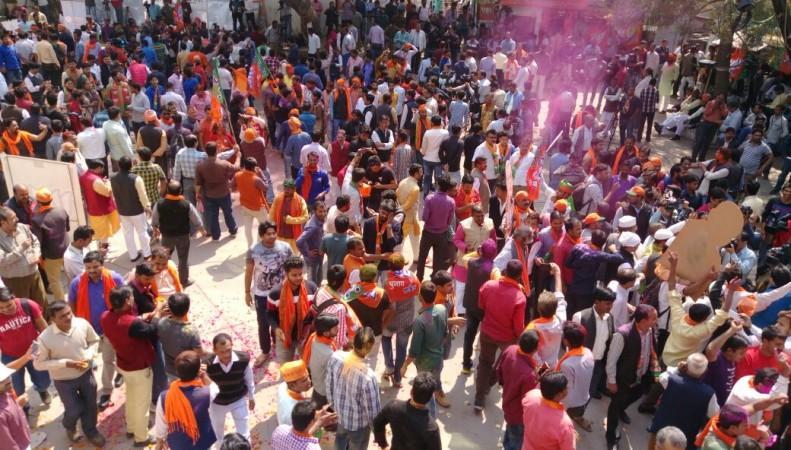
Bengali poet Srijato Bandyopadhyay faced flak on Sunday, March 19, as an FIR was lodged against him at Siliguri in West Bengal for penning a poetry, which "hurt religious sentiments". The complainant reportedly belongs to an apolitical organisation called Hindu Sanghati and took offence over the poem, which was written in the wake of the election results in Uttar Pradesh and the choice of Yogi Adityanath as the UP chief minister.
The complainant had specific objections over the final two lines of Bandyopadhyay's poem, which said: "Amake dharshan korbe joddin kobor theke tuley/condom porano thakbe tomar oi dhormer trishule" [Your religious trident will have a condom on whenever you will rape me after picking me up from the grave]. The target was clearly Adityanath who was accused of threatening to rape the bodies of Muslim women after exhuming them from their graves.
Bandyopadhay said he had no qualms about what he wrote and wondered whether one's religious conviction can be so easily hurt. He said poetry is his way of expressing protest and that everybody is entitled to express his/her own opinion.
The 41-year-old poet is right when he talks of the right to express opinion. But the question is: Do we Indians give the idea of freedom of expression enough significance? We boast of our democracy as being the largest in the world but do our ideals of freedom keep pace with the idea of democracy?
Bandyopadhyay isn't the first person to face censure, and saffron India isn't the only accused
Bandyopadhyay is not the first person to face legal challenges for penning a poem reflecting his own political preference. Neither are the predominant saffron forces of the day the first in the country's history to target creative people. So why raise the question that has been replied to several times in the past: That in India, freedom of expression is a rare concept despite the country being a functional democracy for seven decades now.
Freedom of expression has faced restrictions even under governments that were opposed to Hindu fundamentalism. In the mid-1970s, Indira Gandhi, called by some as India's iron lady, had imposed the biggest ban on freedom of expression in the country in the name of Emergency. Besides that big blot on our democracy, we have also seen several regional parties targeting the media or individuals for 'crossing the limits' when in power in the states from time to time.
In the era of the previous UPA government, which did all it could to stop a 'communal' Narendra Modi from coming to power, there were many instances of people facing the wrath of the rulers for expressing dissent over the prevailing politics of the day. Asim Trivedi, a cartoonist in his early 30s, was at the receiving side of the law for depicting India's parliament house as a lavatory buzzing with flies.
The Mamata Banerjee govt targeted a university professor
In West Bengal, a university professor named Ambikesh Mahapatra faced the Mamata Banerjee government's ire for forwarding a cartoon that had featured the chief minister and a couple of frontline leaders.
Dabholkar and Kalaburagi paid the price dearly in Congress-ruled states
In 2013, Narendra Dabholkar, a rationalist, was murdered in broad daylight in Pune in the then Congress-ruled Maharashtra. He was a crusader against superstition. His efforts to pass an anti-black magic bill were opposed by parties like the BJP and Shiv Sena as they felt it was something against the spirit of Hindu culture.
In 2015, MM Kalaburagi, a scholar who fought against idolatry in Hinduism, was shot dead in Dharwad in Karnataka. The man had faced death threats ahead of his killing and also sought protection from the ruling Congress but it was accused of not providing it initially.
Each of these cases differs in character and merit, but all of them show the common menace — the growing shrinking of the space of freedom of expression in India. Be it just expressing a political opinion or fighting against social ills, neither the state nor the society is open enough to entertain it.
Poet Bandyopadhyay has faced quite a moderate reaction as compared to Dabholkar or Kalaburagi, who had to pay the price of free thinking with their lives. But he has faced an adverse reaction by penning a poetry, which is a worrying sign.
















